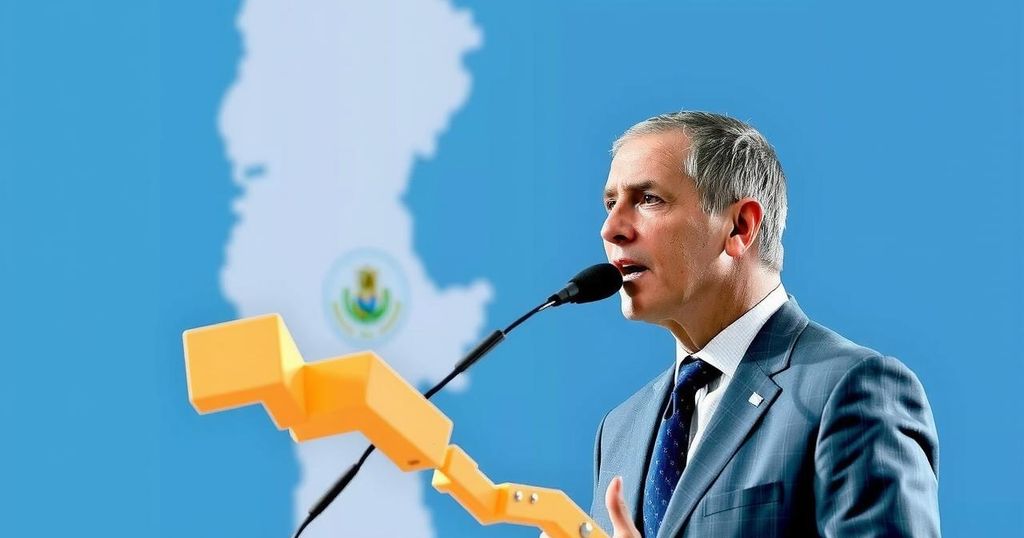Uruguay Set for Presidential Run-off Vote Amid Political Uncertainty

Uruguay’s recent presidential election suggests a run-off vote between leftist candidate Yamandu Orsi and centre-right candidate Alvaro Delgado. Orsi secured 43.2 percent of the vote, while Delgado obtained around 28 percent, with Andres Ojeda trailing in third place. The elections marked a deviation from typical regional polarization, and alongside the presidential vote, two referendums were likely rejected, reinforcing concerns over rising crime rates amidst an approval rating of 50 percent for the current administration.
In Uruguay, the recent presidential election has concluded, indicating a likely run-off between two candidates in the upcoming November election. The contenders are Yamandu Orsi, a leftist former history teacher and current mayor representing the centre-left Frente Amplio party, and Alvaro Delgado, a veterinarian from the centre-right Partido Nacional. According to estimates provided by Equipos Consultores, Orsi garnered approximately 43.2 percent of the votes, while Delgado received around 28 percent, with a third candidate, lawyer Andres Ojeda, trailing at about 15.5-16 percent. This electoral outcome marks a deviation from the pervasive political polarization evident in other Latin American nations such as Argentina, Brazil, and Mexico. Polling had suggested that no single candidate would achieve the requisite majority of 50 percent, leading to the necessity of a run-off. Furthermore, alongside the presidential race, Uruguayans were invited to vote on two referendums regarding the early retirement age and police authority during night-time raids; however, preliminary exit polls indicated that these proposals were likely to be rejected. Overall, this electoral exercise illustrates the electorate’s mixed sentiments towards governance, given that President Luis Lacalle Pou of Partido Nacional enjoys a notable 50 percent approval while his coalition has struggled with rising crime rates. Upcoming elections may signal a shift to a more left-leaning political landscape should Orsi prevail, guided by the legacy of former president Jose “Pepe” Mujica, who despite health challenges, remains an influential figure in Uruguayan politics and actively campaigned during the election.
The political climate of Uruguay has historically been characterized by a relative stability compared to its regional counterparts in Latin America. However, the recent elections have triggered a noteworthy assessment of voter’s preferences amidst shifting political alliances and growing concerns over crime. The political landscape has evolved, encompassing a range of policies that reflect both left-wing and right-wing ideologies, thereby complicating traditional voting patterns. This year’s elections have been particularly significant as they entail the potential for substantial change after five years of conservative governance, which is now being challenged by a leftist candidate who carries the legacy of past leadership.
In conclusion, the upcoming run-off election in Uruguay signals a pivotal moment in the nation’s political trajectory. With candidates from diverging political backgrounds set to contest for leadership, the potential for a significant shift toward leftist governance looms. Additionally, the rejection of both referendums indicates a complex interplay of voter expectations and governmental performance. The presence of prominent political figures, such as Jose Mujica, underscores the deep-seated ties within Uruguayan political discourse, highlighting a critical juncture that could reshape the future of the nation. The election not only reflects the localized national issues but also contrasts with broader trends across Latin America, where electoral outcomes have often been starkly divided along ideological lines.
Original Source: www.aljazeera.com







